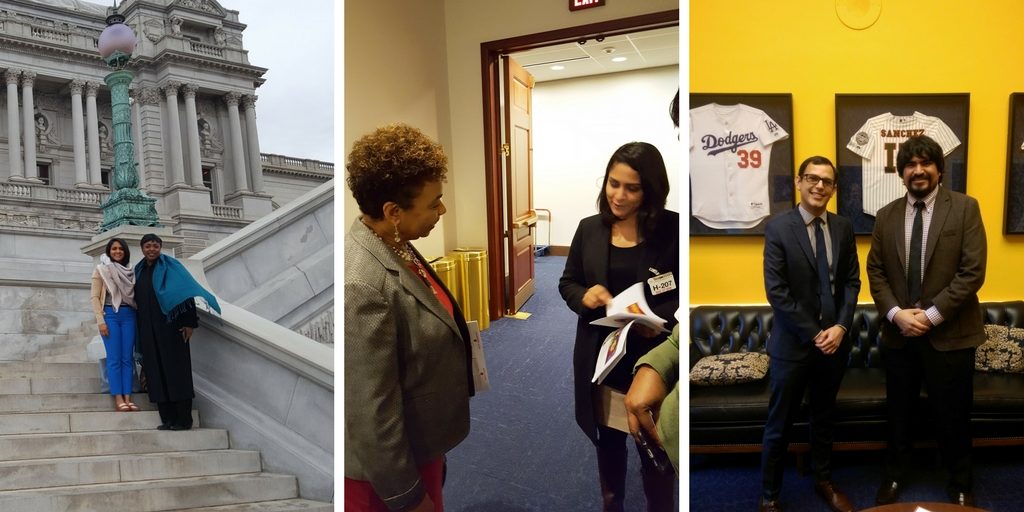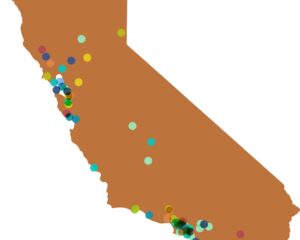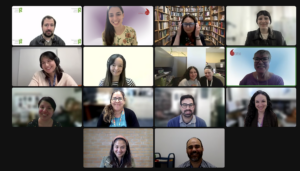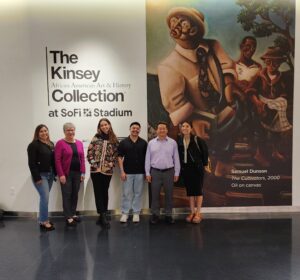– by Oliver Rosales, CH Board Member and Professor of History at Bakersfield College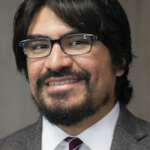
Engaging with elected officials is an important part of engaged citizenship. Lobbying elected officials, however, does not come naturally and requires practice. For those of us laboring in the humanities, the Federation of State Humanities Council-sponsored Humanities on the Hill (HOH) is our annual day for advocacy in Washington D.C. and a chance to practice lobbying first-hand.
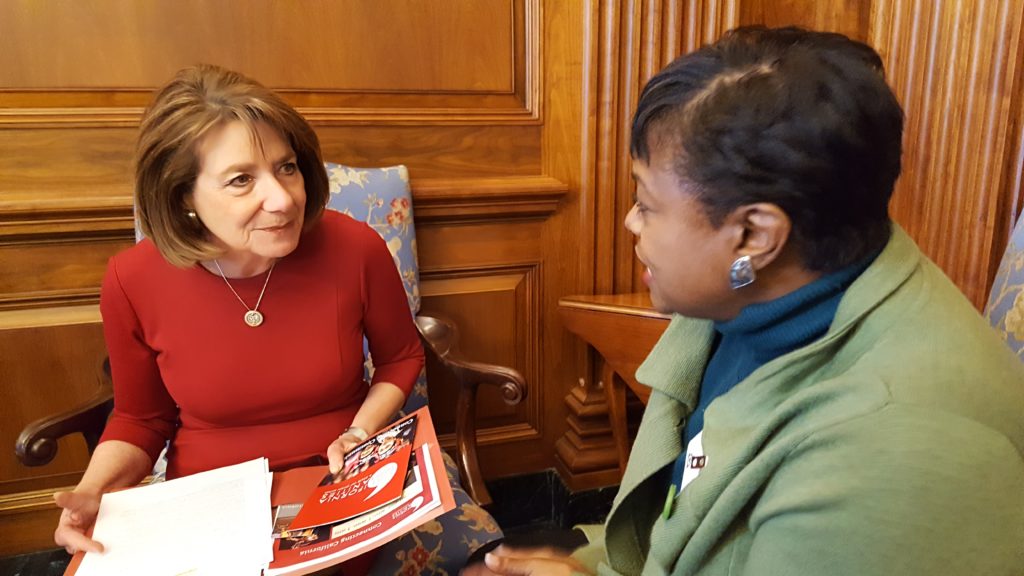
On March 6-8 California Humanities joined with other state and territorial humanities councils to lobby congressional representatives and their staffs on the importance of funding the National Endowment for the Humanities (NEH) and the outstanding humanities programs funded within their respective districts. Divided into two teams composed of advisory board members and California Humanities staff members,the California delegation met with 39 Congressional offices from across the state—a clear reflection that California Humanities touches every corner of the state through its grant making and public programs. From Redding to the Imperial Valley, from Bakersfield to Monterey, the California delegation informed our elected officials about the various grants issued within their districts, as well as debriefed with each office as to what California Humanities could do to better serve the interests of the folks back home in district. These meetings were extremely productive. Each office appreciated the delegation informing of the ways California Humanities directly reaches their constituents.
In addition to meeting with state officials, the California delegation had the chance to attend evening receptions to collaborate and share stories with the other participating councils from across the country. Especially important was a personal address by the Congressional Humanities Caucus Co-Chairs David Prince (D-NC-4) and Leonard Lance (R-NJ-7). Both representatives reiterated to HOH participants that despite President Trump’s repeated calls to eliminate the NEH, there is strong bi-partisan support within Congress for the NEH.
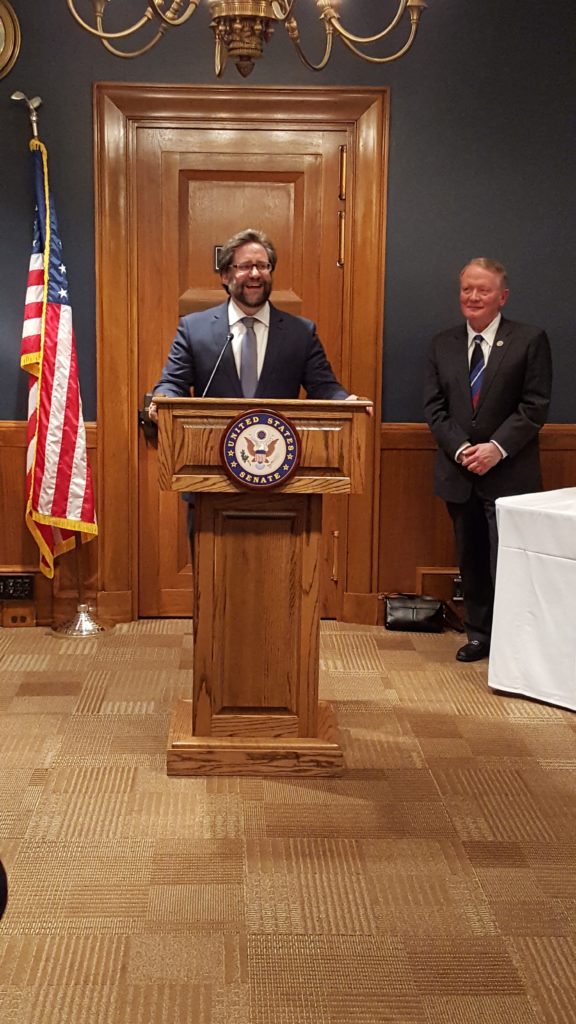
Federation of State Humanities Councils President Esther Mackintosh also addressed HOH attendees, expressing her optimism about humanities funding and the future of NEH. She noted that on March 4 the president nominated Jon Parrish Peede to be Chairman of the NEH. Peede is expected to have a swift confirmation and noted to attendees in his remarks that within the humanities, we “only have friends and future friends”—a reminder to HOH attendees to be proactive in courting support from a variety of viewpoints regarding supporting humanities funding. A scholar of southern literature and former administrator within the National Endowment of the Arts, Peede’s nomination was welcomed by the state councils given his ardent defense of humanities funding, as well as his call for the expansion of humanities programs into rural, under-served communities.
As a Professor of History at Bakersfield College in California’s Central Valley, I am particularly excited about Peede’s vocal support for rural humanities access. Central California is the breadbasket of the world, but at the same time, often lacks access to quality humanities programs in comparison to more urban areas like San Francisco or Los Angeles. Peede’s vocal support for rural access and public-private partnerships is energizing for humanities advocates in rural California who want to expand humanities access and capacity.
California Humanities is focused on growth and equity. Currently, California Humanities is only able to fund 10-12% of all funding requests it receives. We want to expand the number of projects we fund, but need the money to do it. As an advisory board member, expanding access and humanities programs in rural California and immigrant communities is something I repeatedly emphasized throughout my meetings with elected officials. I am quite certain representatives on both sides of the aisle and across California’s diverse regions, both rural and urban, recognize the importance of maintaining strong support for the NEH.
Upon return, I submitted a “Community Voices” piece in my local newspaper, the Bakersfield Californian, which you can read here:
I encourage readers to do the same. Take Action; call your elected officials, both Congressional and state. Remind their staffs about why the humanities are important and should not be taken for granted. Tell them what role cultural and humanities programs have in your life and why they are important for your community. Your voice matters. All of us laboring in the humanities and who benefit from humanities programs can do our part by reminding our elected officials on why funding the humanities matters.

